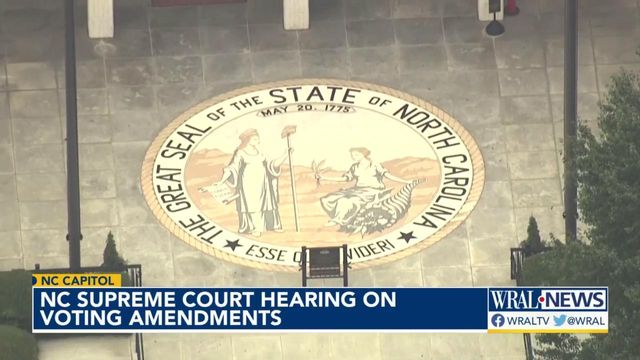US Supreme Court hears arguments in NC voter ID case
Before the federal courts break down North Carolina's voter ID law, an argument over who should defend it: Republican lawmakers or the state's Democratic attorney general.
Posted — UpdatedThe U.S. Supreme Court heard arguments Monday on a side issue in one of North Carolina’s long-lingering voter ID lawsuits: Exactly who should get to defend the case.
For several years Attorney General Josh Stein’s office has represented the North Carolina State Board of Elections in the lawsuit, and they’ve had some success defending the constitutionality of North Carolina’s photo ID law, though the case is far from over.
Republican lawmakers who passed that law say it makes more sense for them to handle the defense, and they question whether Democrats who disagree with them on a wide range of issues—including at times voter ID—will ultimately put up as vigorous an effort.
It's one more separation-of-powers question bedeviling North Carolina politics, and it has now traveled to the nation’s highest court.
It was difficult to divine from the justice's questions Monday how they'll rule on the issue, but they peppered attorneys on both sides with questions on procedure and potential impact.
Liberal Justice Elena Kagan noted Monday that Stein’s office has repeatedly said the law is constitutional and defended it as such.
“So where is the conflict?” she asked. “Why is the attorney general inadequate?”
Attorney David Thompson, who represents Speaker of the state House Tim Moore and state Senate President Pro Tem Phil Berger in the case, said it’s not simply about a robust defense. The State Board of Elections’ primary interest in the case is administrative, he argued—getting clear rules by which to run the election, regardless of what those rules may be.
Republican lawmakers’ primary interest is defending the law itself, which would generally require voters to show photo ID at the polls. That requirement, which voters added to the state constitution in 2018, isn’t in effect right now because of this lawsuit and two others pending at the state court level.
Lawmakers have also passed laws making it easier for them to intervene in this sort of lawsuit, as well as a bill last year that said the attorney general couldn’t settle a lawsuit they’ve intervened in without their permission. Cooper vetoed that bill, but Republican leaders stuck it into a much broader state budget bill, which passed with bipartisan support and Cooper ultimately signed into law.
As it stands now, Thompson said, GOP lawmakers are able to defend the voter ID law in the two state court cases, but not the federal one, because the judge there wouldn’t let them to intervene. The distribution of power in state government, Thompson argued in a legal brief filed ahead of Monday’s Supreme Court arguments, “should not depend on whether a plaintiff sues in state or federal court.”
State Deputy Solicitor General Sarah Boyce handled oral arguments Monday for Stein’s office and the State Board, saying lawmakers can’t justify a forced intervention in the case. They can’t point to any evidence that the attorney general’s office has failed to defend the law, she said, and lawmakers “have identified no daylight between their legal position and ours.”
The North Carolina NAACP brought the underlying lawsuit in this matter, and their lawyer argued Monday to leave things as is, letting Stein’s office handle the defense.
This case is NAACP v. Berger.
• Credits
Copyright 2024 by Capitol Broadcasting Company. All rights reserved. This material may not be published, broadcast, rewritten or redistributed.






